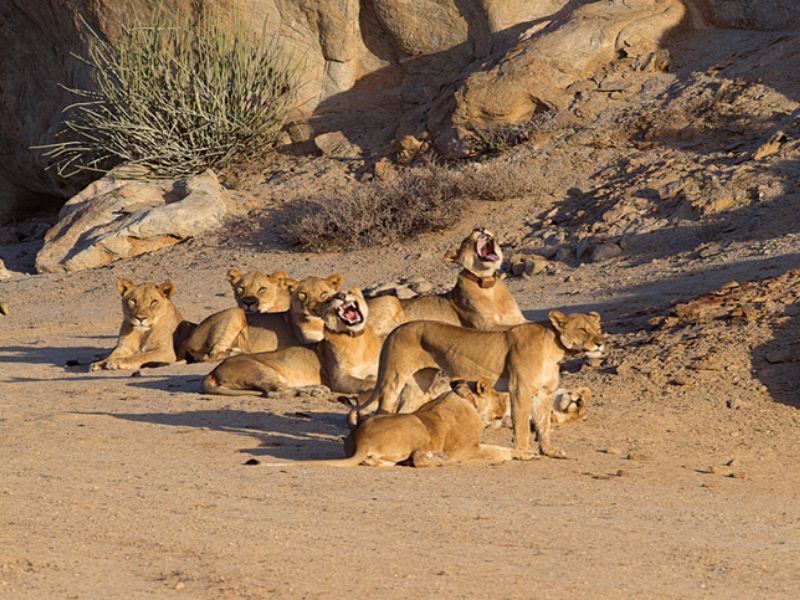Despite being near extinction in the early ‘90s, and thanks to the pioneering work by the celebrated conservationist, Philip (Flip) Stander, the desert lions on the Skeleton Coast and in northwest Namibia are now not only surviving, but also breeding and thriving. Numbers have increased from just 20 lions in 1992 to around 100 today and, while the lions may pose a threat to livestock farmers and nearby local communities, it is possible – through effective and fast communication – to protect everyone and every animal. None of this would be possible without the technology and communication, provided by Paratus Namibia.
In adapting to their harsh environment, desert lions uniquely hunt seals and cormorants on the Skeleton Coast. The Desert Lion Conservation Trust (DLCT) reports that these lions do not venture further inland to kill domestic livestock, when their natural prey animals are scarce.
Our research shows that this is not only unique behaviour among any African lions. but it also reveals that these beach lions can survive on their marine catches alone and derive all they need from what they hunt on the beach.
Philip (Flip) Stander, Celebrated Conservationist
A major challenge exists during the popular annual Torra Bay fishing season in December and January, when thousands of enthusiastic anglers descend on the area. Because of the potential conflict, Flip Stander spent 25 days in December and January camping out in the area to observe the lions and alert humans of any impending danger (with the use of flashing strobe lights). “The concern is that if the lions’ kills are interrupted or the environment is disturbed, there could be potential human-lion conflict and upset the pattern of survival for many of these lions. By observing one lioness in particular, we saw that while there were many interested ‘tourists’, we were able to dissuade them from approaching the lioness. What was really astounding was how the lioness adapted very quickly to the large number of vehicles now in the area. She dragged her fur seal catch over 4kms inland for example and generally spent less time on the beach which was now busy with anglers.”
Flip Stander’s work is so important – for our unique cultural heritage and for protecting both people and animals. Our help in keeping him connected so that his reports and alerts can be sent timeously is critically important, and we are proud to be able to help in this way.
Barney Harmse, Executive Chairman, Paratus
The Desert Lion Conservation Trust has established a research station at Mowe Bay in the Skeleton Coast National Park where all the data is collected, analysed, and stored, and where the alert messages are generated. The Mowe Bay research station is currently equipped with a Paratus VSAT system using the Omajova P-A-Y-G package.
The Desert Lion Conservation Trust carries out vitally important work – not only for the lions and local communities but also for local tourism because the desert lions attract increasing worldwide interest. It is vital that we keep the DLCT connected and help the trust to maintain its data, its fast transmission, and its monitoring.
When I’m in the middle of nowhere, when my colleagues monitoring the lions are working remotely, miles from any other life form than lions, we depend upon communications. Without it we could not do our work effectively; without it, people and livestock might perish; without it, the lions could not be understood, left alone and respected.
Barney Harmse, Executive Chairman, Paratus
It’s very important that these lions are protected. It’s equally important that they are monitored and that, through understanding their behaviour, their survival needs and their movements, we can alert communities to the fact that lions are in their vicinity. They, in turn, can protect their livestock and themselves. Without communication about the daily activities of these lions, the work could not be successful, the alerts would not be issued, and we’d all be working ‘in the dark’ with dire consequences.
Philip (Flip) Stander, Celebrated Conservationist










